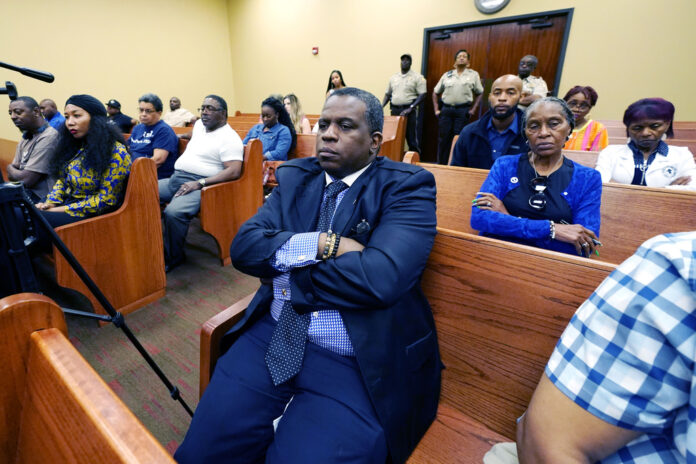
LEXINGTON, Miss. (AP) — There are 32 school districts in Mississippi still under federal desegregation orders, the U.S. Department of Justice’s Civil Rights Division’s assistant attorney general said Thursday.
Enforcing the open desegregation orders fit into a broader body of civil rights work launched in Mississippi that is examining jails, police departments and hate crimes in the state, according to Assistant Attorney General Kristen Clarke of the U.S. Department of Justice’s Civil Rights Division. Referring to the U.S. Supreme Court decision that outlawed segregation of public schools across the country, she said the Justice Department is ensuring school districts provide Black students in Mississippi with equal access to education programs.
“In our ongoing efforts to fulfill the promise of Brown vs. Board of Education, we currently have 32 open cases with school districts here in Mississippi,” Clarke said. “And in each of those cases, we are working to ensure that these districts comply with desegregation orders from courts.”
Clarke spoke to a small group of residents, local leaders and reporters Thursday at the Holmes County Circuit Court Complex in Lexington, about 62 miles (100 kilometers) from Jackson, the state capital. Mississippi is the latest stop in Clarke’s “listening tour” throughout the Deep South. The Justice Department is learning where to direct resources and where it might need to mount civil rights lawsuits, she said.
Mississippi has the highest percentage of Black residents of any state. It has been home, as have other states, to legal fights over desegregation. In 2017, a Mississippi Delta school district agreed to merge two high schools after nearly 50 years of litigation in which the district sought to maintain historically Black and white schools.
In addition to school districts, Clarke said at least five Mississippi jails and prisons have come under federal scrutiny. The department is looking into whether the facilities protect prisoners from violence and meet housing standards. The facilities include the Mississippi State Penitentiary in Parchman, the South Mississippi Correctional Institution, the Central Mississippi Correctional Facility, the Wilkinson County Correctional Facility and a Hinds County Jail.
Clarke also said her division is investigating whether Rankin County Sheriff’s Deputies used excessive force when they shot Michael Corey Jenkins in the mouth during an alleged drug raid. An Associated Press investigation found that several deputies from the department have been involved in at least four violent encounters with Black men since 2019 that left two dead and another with lasting injuries.
Clarke declined to offer more details about the case, citing an ongoing federal civil rights investigation. After delivering prepared remarks in Lexington, she met with community members about allegations of police brutality in the small town. Police have “terrorized” Black residents by subjecting them to false arrests, excessive force and intimidation, an ongoing federal lawsuit claims.
“What I hope she’ll do is seriously address the issues. Not gloss over them, say that she has heard about these violations, talk about them in detail and say that it is wrong if it is happening,” said Jill Collen Jefferson, president of JULIAN, a civil rights organization that filed the federal lawsuit on behalf of a group of Lexington residents.
The community meeting was closed to reporters. The Justice Department has not announced an investigation into the Lexington Police Department.
Jefferson said her organization plans to file a class action lawsuit against the Lexington Police Department in the new few months.
Against the backdrop of ongoing investigations into potential civil rights violations ensnaring school districts, jails and police departments is FBI data released in March showing the number of hate crimes in the U.S. rose in 2021.
“Hate and bigotry are sadly on the rise,” she said.

